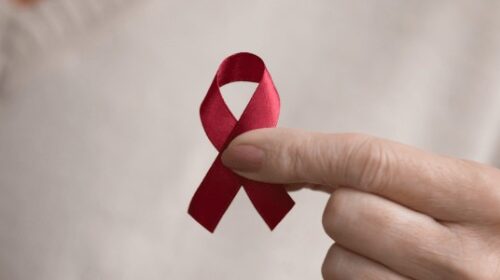Grass, pot, weed, Mary Jane, the green stuff, reefer…Regardless of what you call it, cannabis is the most commonly used federally illegal drug in the United States, according to the CDC.
But the question that repeatedly arises in both the recovery community and the media:
“Can you be sober and smoke weed?”
Some think it’s a no-brainer, yes! And others adamantly say no. It’s a contentious conversation with various factors to consider. We will dive into both perspectives and let you decide for yourself.
Opinion 1: “Yes, You Can Be Sober and Smoke Weed.”
Many believe that using cannabis (in whatever form you prefer) does not contradict your sobriety, that is, unless you are striving for sobriety from the drug itself.
Cannabis use for harm reduction
Those who are sober from other drugs or alcohol but use cannabis regularly affirm that using this form of harm reduction supports their recovery.
Harm reduction is an evidence-based recovery approach that seeks to minimize the negative consequences of substance use and addiction. The basic idea is that any harm reduction is a step in the right direction and that small changes can significantly improve people’s lives.
Medication-assisted treatment (MAT) is a form of harm reduction used at Recovery Unplugged. MAT is commonly used to treat people with opioid-use disorders but can also treat alcohol-use disorders.
Similar to the desired outcome of MAT, those who use cannabis to support their recovery say it helps them manage symptoms of anxiety, depression, or chronic pain. And because of that, their overall quality of life improves too.
Sobriety is a personal decision
Whether or not you think smoking weed is OK in sobriety depends on your definition of what “sobriety” is. If your drug of choice (DOC) was not cannabis, you might not see a problem using it.
Let’s take someone who has a problem with alcohol, for example. The adverse effects of alcohol they experience include blacking out, hangovers, and other physical symptoms induced by too much drinking. They do things under the influence they’d never do without drinking and have dealt with legal, work, and relationship problems.
Many people struggle with alcohol because they “can’t just have one,” but cannabis doesn’t necessarily have the same effect on them. They enjoy the calming effects of cannabis without all the negative consequences they get from drinking.
As long as they can manage their intake and not abuse it, they don’t see the problem. And if weed never becomes an addiction, what’s the harm, right?
This is one of the reasons many people who have quit drinking use the term “alcohol-free” instead of “sober.” Of course, labels aren’t required for recovery, but with so many options today, you don’t have to call yourself an alcoholic or a sober person to decide to quit drinking. Another term creating a buzz in the recovery community is “Cali sober.”
What is California Sober?
The term “Cali sober” has gained popularity recently, particularly among young adults and those in the wellness community. “Cali sober” refers to a lifestyle in which a person abstains from alcohol and other drugs but still uses marijuana.
The main benefit of being “Cali sober” is that you can still be social and go to bars and clubs with friends without feeling pressured to drink alcohol. Some people consider marijuana less harmful than other drugs or alcohol and notice fewer side effects.
The term originated in, you guessed it: California, where marijuana is legal both recreationally and for medicinal purposes.
Medical Marijuana
Many people use medical marijuana to help with physical and mental health issues. You need approval from a medical provider to use the drug in this form. Medicinal cannabis is not regulated or approved by the FDA. However, they do monitor unapproved cannabis and cannabis-derived products used for medical use.
Aside from being sold differently, the difference is that recreational cannabis has more Tetrahydrocannabinol (THC) content, the component of cannabis that gives you a “high” feeling.
The FDA has approved the medication Epidiolex for seizure treatment in a rare form of childhood epilepsy. Epidiolex contains a purified form of cannabidiol (CBD) deemed safe by the FDA. The FDA also approved a few medications containing a synthetic form of THC to ease nausea in cancer patients.
The research that links opioid use and medical marijuana is promising. Opioid daily dose prescriptions decreased by 3.742 million per year in states where medical cannabis dispensaries opened, according to a 2018 study published in JAMA Internal Medicine.
Now, let’s hear from the other side.
Opinion 2: “No, Smoking Weed Is Not Sober.”
Addiction is not just about abstaining from one substance but changing our behaviors and habits. And using cannabis can be a way to justify continued drug use rather than a commitment to sobriety.
Lala Kent, star of Bravo’s reality TV show Vanderpump Rules, told Us Weekly, “There are people out there who work their ass off to never take themselves out of reality and to never place themselves in an altered state.” Kent has been vocal about her struggles with alcohol and her opinions about using weed in sobriety.
Smoking weed is a relapse
“Sobriety” has a few different meanings. According to the dictionary, “sober” means not being intoxicated or abstaining from drinking alcohol or taking intoxicating drugs, also: refraining from using addictive substances.
For many who work a more traditional recovery program (typically, working the 12 steps of Alcoholics Anonymous), that means no mind-altering substances.
Therefore, if you smoke weed, you are not considered sober. And if you use it while in recovery, that is technically a relapse.
Many people are against the use of marijuana, even for medical purposes. Providing an accurate dose of the products can be difficult, and there are health problems associated with using the drug, such as cognitive impairment. In addition, long-term effects in some vulnerable populations are unknown.
Can You Be Addicted to Weed?
The short answer is yes.
Although we don’t discuss it as much as other addictions, you can become addicted to marijuana. So, the real question is, why don’t we consider smoking weed or taking it in other forms “as bad” as other drugs when it causes real problems for so many people? We could ask ourselves the same thing about alcohol, couldn’t we?
The National Institute on Drug Abuse (NIDA) reports that using marijuana can lead to addiction. Research shows that 30% of people using the drug have some form of marijuana use disorder. The likelihood of developing marijuana use disorder increases for those who began using it before their 18th birthday.
Marijuana use disorder is associated with a person’s dependence on the drug. When a regular cannabis user stops, withdrawal symptoms can last up to two weeks. The NIDA lists symptoms such as:
- Irritability
- Sleep issues
- Decreased appetite
- Cravings
- Restlessness
- Physical discomfort
According to the NIDA, “Marijuana use disorder becomes an addiction when the person cannot stop using the drug even though it interferes with many aspects of his or her life.” However, similar to alcohol and other recreational drugs, not everyone who uses cannabis becomes addicted.
Marijuana is a gateway drug
Many people in recovery discuss chasing a “high” and doing anything to get it. Those who either tend to overdo it or become addicted quickly must be careful with anything that alters their mental state.
Some consider cannabis to be a gateway drug and believe it leads to increased use followed by switching back to your DOC or a harder drug to get high.
This can also include eating sweets, gambling, having sex, and exercising. For those with addictive tendencies, it can be a slippery slope and lead to a quick and dangerous decline.
Opinion 3: “It’s Up to the Individual”
There is no one-size-fits-all answer to whether using marijuana is considered sober. Researching and determining what is best for your recovery journey is essential.
The “Cali sober” lifestyle has some potential benefits, but individuals should carefully consider their motivations and potential risks before adopting it as a permanent lifestyle choice.
Seeking professional help is an excellent idea if substance abuse is a concern. Although challenging, be honest with yourself and choose the best decision for you.
In addition, try to keep an open mind and respect others’ choices. If you’re concerned that your loved one has a problem with marijuana, help is not far away.
Recovery Resources
Cognitive behavioral therapy (CBT) helps you work through your addiction by learning the underlying root causes and sustaining factors that led you to use substances in the first place. In therapy, you work with a therapist to learn new coping skills and strategies to prepare you to handle your day-to-day.
At Recovery Unplugged, we treat marijuana abuse very seriously. Our goal is to help people see the impact of abuse on their lives. Treatment will address the root of your use and help you rebuild your life after addiction.
Call us today if you want to speak to a professional. Someone is available 24/7 every day of the year: 1 (855) 975-1757.

























